
“If the American people ever allow private banks to control the issue of their currency, first by inflation, then by deflation, the banks and corporations that will grow up around them will deprive the people of all property until their children wake up homeless on the continent their Fathers conquered.” The Thomas Jefferson Encyclopedia on the Jefferson-focused Monticello website says that alleged quotation is at best partially spurious. That doesn’t make the statement fascinating. Monticello provides details about variations of the purported Jeffersonian statement first known to have appeared in print around 1933, more than a century after that founding father’s death on July 4, 1826. The recent report shared below about a stunning decision in a case involving housing is not connected to banking. But for reasons that historically-minded individuals that can spot an analogy may grasp, though this recent case reported below doesn’t involving banking, it is an arguably an example of the closing point that the claimed Jefferson ‘quotation’ above sought to make. Namely, how Americans can end up homeless due to events that occurred through no fault of their own, despite Constitutional and other legal ‘guarantees.’ How this incident sheds light on issues impacting our profession will be unpacked in the added information and related MHProNews commentary and analysis that follows the WND NewsCenter provided item by them with permission. That will be followed by insights from a legal nonprofit, plus our Sunday weekly headlines for MHVille in review.
HEALTH | MONEY | POLITICS | U.S. | WND NEWS CENTER | WORLD
Appeal promised in fight on behalf of citizens left homeless by ‘Environmental Court’
Plaintiffs charge due process ignored in city’s procedures
By Bob Unruh
Published August 6, 2022 at 5:45pm

Officials with the Institute for Justice have confirmed an appeal is being prepared for the 6th U.S. Circuit Court of Appeals.
The issue is the “court” is given by the city authority to rule against homeowners regarding the condition of their homes.
The IJ reported, “In one case, the Shelby County Environmental Court left Sarah Hohenberg bankrupt, homeless and with her possessions tossed onto the street. After a tree fell on her home in 2009, her neighbors sued her in the Environmental Court while Ms. Hohenberg tried to get insurance to pay for the repairs. In the other case, Joseph Hanson’s home was demolished after it too was damaged in a storm.”
In the fight against the confiscation of their properties, a federal court recently dismissed a complaint, citing a rarely used standard that says federal courts cannot hear appeals from those who lose state court judgments.
However, the IJ reported, “neither Sarah nor Joseph lost in state court—the Environmental Court simply dismissed the cases against them—and the Environmental Court never issued a judgment in either case.”
The problem is that while Shelby County set up the Environmental Court to clean up abandoned properties, it now issues rulings on residences occupied by taxpayers.
“Worse yet, it does not function like a court at all; its ever-changing goalposts and multiyear proceedings left both Sarah and Joseph homeless and without anything to their names. In Sarah’s case, when she refused to sign over her home to a ‘receiver,’ the court issued a warrant for her arrest and she became a fugitive from the law,” the IJ reported.
Bill Maurer, a lawyer for the IJ, said he looks forward to having the decision corrected on appeal.
“This saga demonstrates the need to have fair and accurate proceedings in the first instance. Courts should act like courts instead of forcing people to go through years-long federal litigation to rectify the fact that they did not get the fair hearing to which they are entitled under the U.S. Constitution,” he said.
In the Environmental Court, individuals, or city employees, present “unsworn, unauthenticated” complaints.
Neighbors in the audience are allowed to stand and testify.
“Anyone wishing to review what happened in a case against them is typically out of luck—the court does not create any meaningful records of their proceedings. While defendants are technically able to appeal Environmental Court decisions, there is no record, evidence or transcripts for an appellate court to examine. Put another way, defendants have the right to appeal in name only,” the IJ reported.
The targets of the court’s actions describe it as “torture,” and a deprivation of “due process.”
“The Due Process Clause of the Fourteenth Amendment to the U.S. Constitution requires that all courts provide meaningful procedural guardrails in cases involving occupied homes. The Environmental Court simply does not do that,” IJ lawyer Rob Peccola said. … ##
The Institute for Justice (IJ) website has their own published statement about the cases WND reported on above. It says the following.
Memphis Environmental Court

Sarah Hohenberg’s journey through the Environmental Court has left her bankrupt, homeless, stripped of her possessions and a fugitive from the law. In 2009, a tree fell on her home causing significant damage. While she tried to get her insurance to pay for repairs to her home, Ms. Hohenberg’s neighbors sued her in the Environmental Court, trapping her there for a decade. It is not an overstatement to say that this suit ruined Ms. Hohenberg’s life—she lost her house, the court’s multi-year proceedings caused her to deplete her finances on lawyers, and the court ordered her possessions removed from the house, leaving them to be stolen or carried away. Unable to meet the court’s ever-changing repair goalposts, Ms. Hohenberg lost the home that she owned outright. Humiliated and destitute, she fled to Mississippi as a fugitive because she refused to sign over her home. She is now ill, bankrupt and homeless.
Like Ms. Hohenberg, Joseph Hanson also lost his home in Environmental Court proceedings after a tree fell on it. Despite no valid testimonial or evidentiary basis, the Environmental Court jailed Mr. Hanson numerous times, bulldozed his home and destroyed his possessions. He, too, is now homeless.
Ms. Hohenberg and Mr. Hanson arrived at this spot through a woefully constitutionally deficient process that took years to complete. In the Environmental Court, witnesses are not sworn in, nor do they attest that their testimony will be truthful. There is regularly hearsay testimony. Evidence, such as it is, is not authenticated. People “testify” from the courtroom audience. When witnesses testify, there is no foundation laid to determine their ability to provide evidence. The court does not follow the Tennessee Rules of Civil Procedure or the Tennessee Rules of Evidence. Instead, the Environmental Court’s proceedings are governed by the Shelby County General Session Rules—Criminal Division Rules, which are six pages long and largely concerns courtroom decorum.
Worse yet, the Environmental Court is not a “court of record” under Tennessee law, meaning that its proceedings are not transcribed or recorded. Appeals from the Environmental Court go directly to the Tennessee Court of Appeals, meaning that while a person may, in theory, appeal from an Environmental Court decision, there is no record for the Court of Appeals to examine. It is a right to appeal in name only.
Now, Ms. Hohenberg and Mr. Hanson have partnered with the Institute for Justice to ensure that court procedures involving occupied homes follow stringent procedural protections. This case aims to ensure that the Environmental Court, and similar housing courts across the country, comply with the Due Process Clause of the Fourteenth Amendment to the U.S. Constitution. ##
Details on that case, including the attorneys, staff and pleadings to date can be found at this link here.
Among those involved in the proceedings is William R. “Bill” Mauer. IJ’s site says that he is the “Managing Attorney of the Institute for Justice Washington Office.” IJ also says of themselves that they “engages in litigation in the areas of economic liberty, private property rights, educational choice, & freedom of speech.”
IJ also stated: “Maurer is a nationally recognized advocate against the criminalization of poverty and the governmental use of the criminal and civil enforcement systems to raise revenue.”
Summing up and rephrased, this case is a parallel that is not radically unlike the spurious Jeffersonian statement at the top. There are tragically enough issues in America where people are being deprived of their property and rights without proper due process that attorneys and nonprofit organizations exist that are busy attempting to address the grievances of citizens who have suffered at the hands of ‘their own’ government.
Additional Information, More MHProNews Analysis and Commentary in Brief
Notice that not one word in the above from WND or the IJ report mentions manufactured housing. But housing and related rights are in the mix.
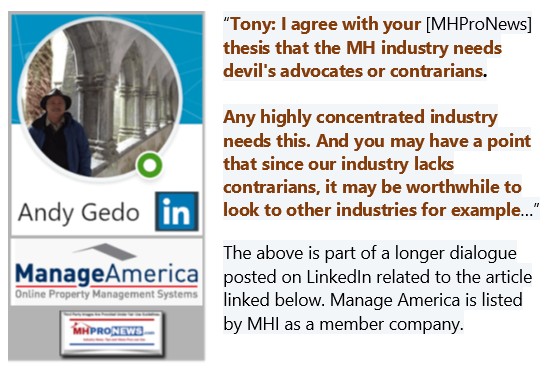
In the instances involving of our affordable housing profession and manufactured homes, there is a crying need to get justice done for the thousands who are being deprived of their rights day by day until their numbers total in the millions. Those millions are impacted by a mysterious ‘system’ that they routinely don’t fully grasp.
Manufactured housing was the subject of several important pieces of federal legislation in the past quarter century. Why? Because in an apparently bipartisan way, Congress and two presidents from both major political parties enacted and signed into law legislation that were supposed to protect, advance, and promote access to more affordable housing to millions of Americans. Having performed their due diligence, they found manufactured homes were worthy of the legislative support that were supposed to remove barriers and streamline the process of affordable home ownership.
Nevertheless, approaching a quarter of a century has passed since Congress passed the Manufactured Housing Improvement Act (MHIA) of 2000. How will that 25th anniversary be celebrated? Or will it even be remembered?
That the MHIA hasn’t been properly implemented was the subject of a Government Accountability Office (GAO) study as well as two sets of Congressional hearings that took testimony in 2011 and 2012.
Two national trade organizations, which see several things distinctively in our profession, happen to agree on paper that the MHIA and the so-called Duty to Serve (DTS) Manufactured Housing passed into law as part of the Housing and Economic Recovery Act (HERA) of 2008 to provide more financing to make the acquisition and ownership of manufactured homes more affordable. Yet, some 14 years after DTS was “mandated,” the Manufactured Housing Institute (MHI) and the Manufactured Housing Association for Regulatory Reform (MHARR) each agree on paper (with distinctive reasons) that Congressional intent has been thwarted. Both national trade groups agree that the MHIA isn’t properly implemented either. When hundreds of thousand in our nation are homeless, often living in tents, cardboard boxes, or broken down vehicles – how is it possible that affordable manufactured housing isn’t robustly embraced as absolutely necessary in our era?

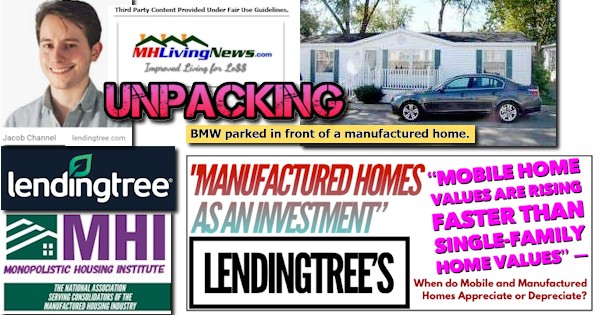
Day by day, manufactured housing’s story is ‘told’ or obscured, as an individual case may be, by individuals and mediums who may be well meaning, but who routinely fail to understand even the proper terminology for what a manufactured home is or is not.
No, a manufactured home is not a ‘mobile home.’
There are similarities, but there are construction and legal distinctions that make the term mobile home and HUD Code manufactured housing distinctive categories of affordable housing that each merit their own precise nomenclature. How many professions can such an odd claim be accurately made about? Why aren’t apartments or conventional housing slurred by phrases such as ‘trailer trash?’ Who is authentically speaking up for those who need, want, or already own a manufactured home?
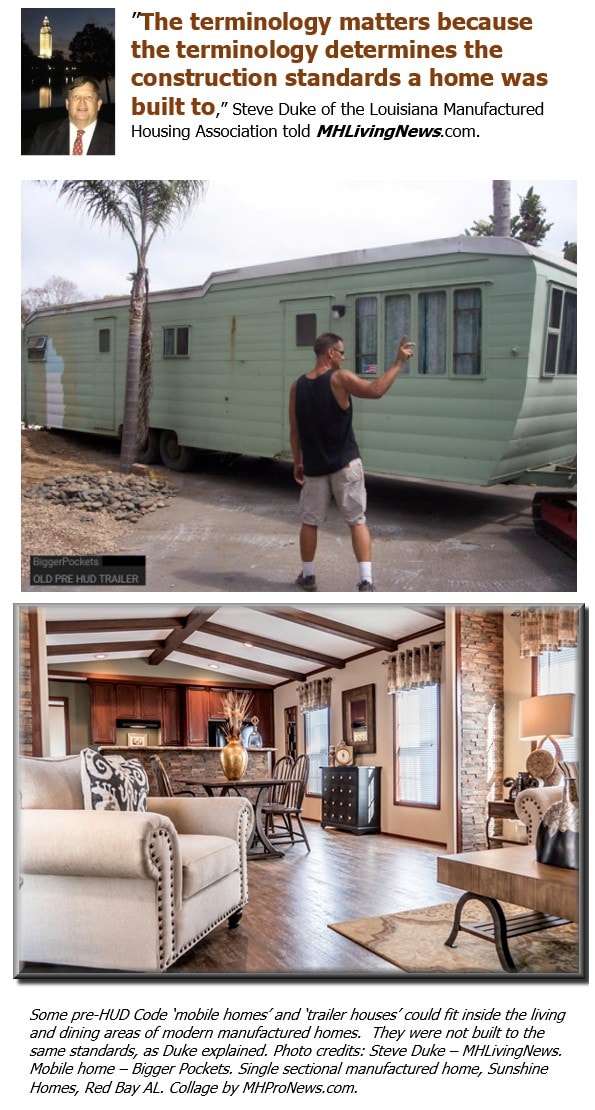

Why is it that even when third-party research is performed that debunks the common concerns about modern manufactured homes, that those reports are not to be found on our industry’s largest post-production trade association website?
Day by day, there are citizens who are crying out for help with their affordable housing and manufactured home related concerns.
Oh, there are nonprofit organizations that claim to represent them, and which to varying degrees may or may not be true.
But many involved in those organizations fail to grasp how their group has arguably been weaponized to perpetuate the status quo. Some operations in MHVille make hundreds of millions to billions of dollars a year because they prefer the status quo, even if they publicly posture some seemingly phony lament about the homeless, the marginalized, or those who become victims of some predatory operation.
For each pointing finger, three others are pointing back.
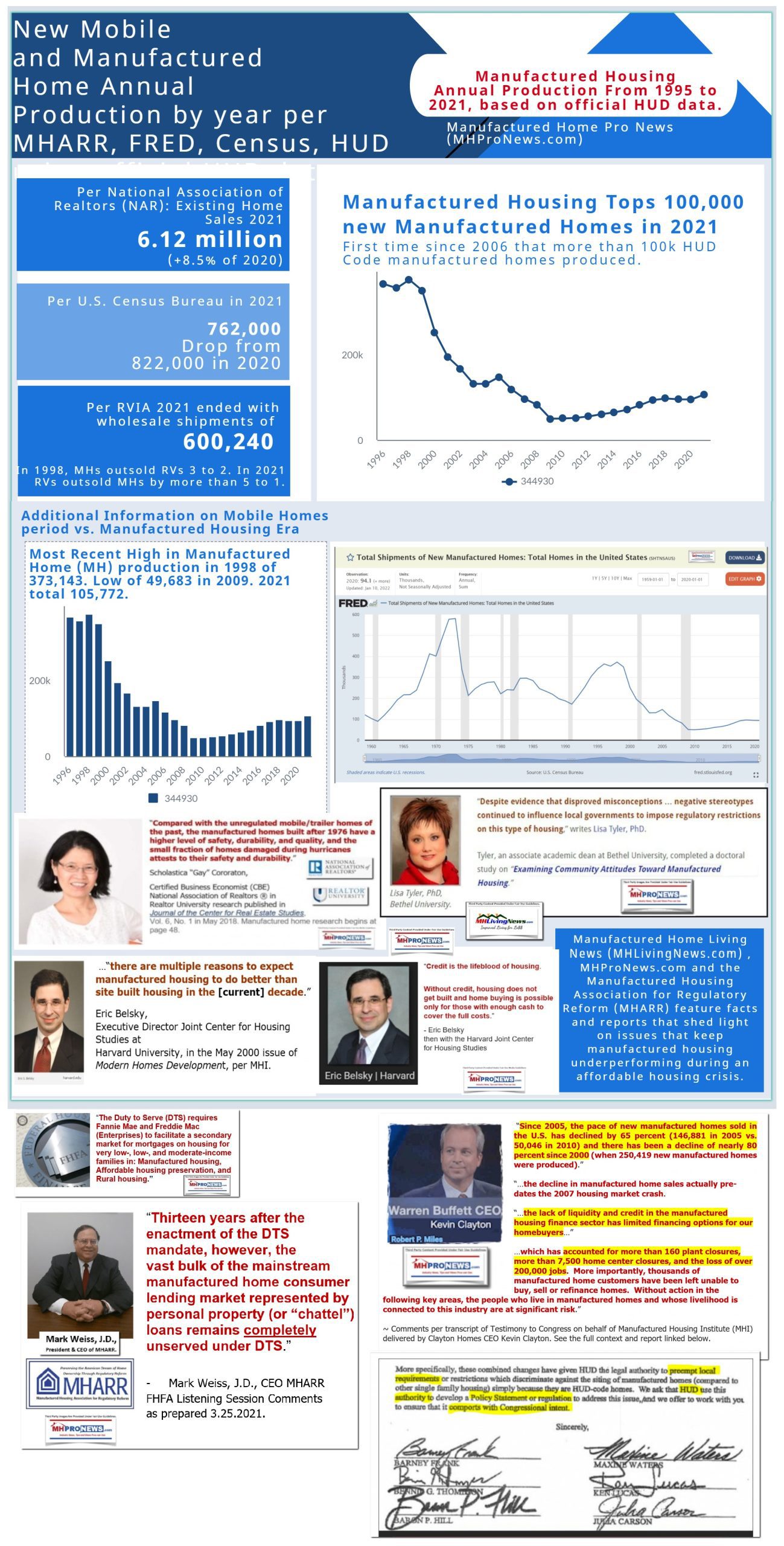
A publication like MHProNews and MHLivingNews can to some extent bring these issues forward for others to examine, consider, and perhaps fuel a discussion. A rival blogger, commenting about this site thoughtfully told MHProNews privately one day that the articles published here are what others discuss in bars, restaurants, or during coffee breaks at the office or at meetings with those they feel comfortable with.
Be that as it may, a trade publisher isn’t a nonprofit group with attorneys, donors, and staff that can hypothetically act with lawmakers, appointed officials, or the legal system so that justice may potentially be done. We aren’t the Institute for Justice (IJ), nor do we aspire to be them or like other organizations in that space which advocate for the rights of those like the individuals in the story and IJ commentary posted above.
The quotation at the top, and the instances being battled in court by IJ’s Mauer and is colleagues, are just part of the milieu of modern America. The IJ suit is a reminder, as are the linked cases below, that there are times when lobbying and legislative efforts are failing to bear fruit that savvy litigation should be deployed.

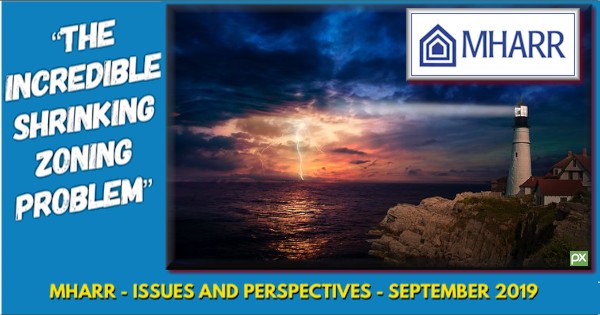
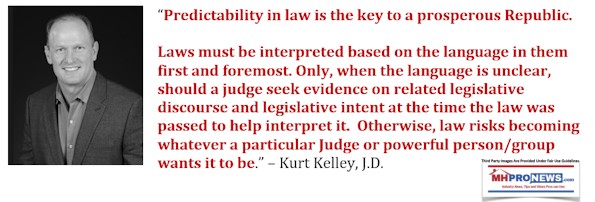
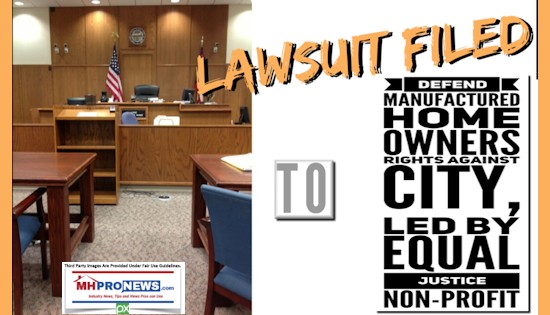
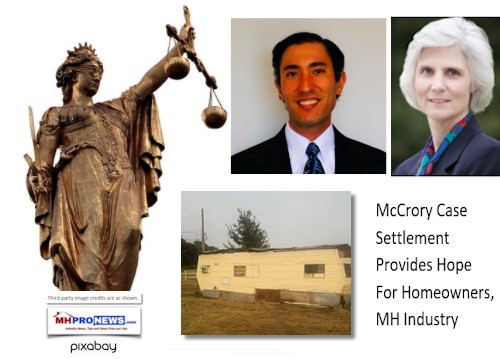
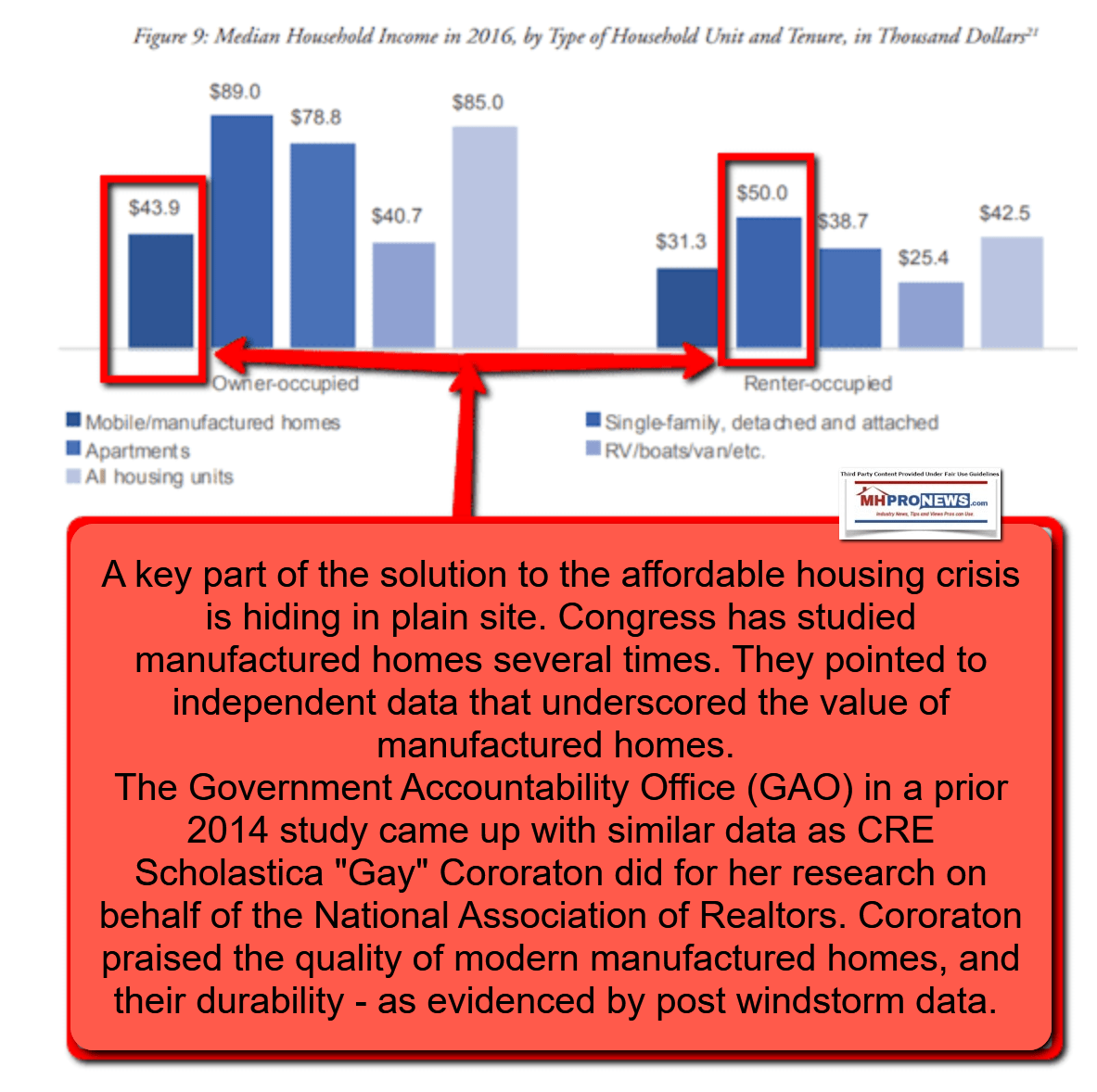
People on the left, center, and right decry what has ‘gone wrong’ in our constitutional republic. That doesn’t mean that the U.S.A. isn’t a better place to live in terms of personal rights and potential opportunities than dozens and dozens of nations around the world, regardless of ethnic, religious, or other cultural distinctions. Some argue that the colonists of America should never have “conquered” what became the U.S.A in the first place. Whatever the merits, or lack thereof, of that notion, those who cling to it often fails to recognize that the indigenous people in North and South America were often in conflict with each other, and yes at times ‘enslaved’ members of a rival tribe. They also fail to mention that conquest has been part of human history since the days when Adam and Eve were shown the exit from the Garden of Eden.
Until more understand that history is often a tale of how one group tries to manipulate, conquer, or otherwise dominate another, much of the kabuki theater occurring in county, state, or this nation’s capital will remain an unsolved mystery.
Manufactured housing may be one of the most needed, yet least understood professions in America today. Because that is so, in one report with analysis and commentary after another, we aim to lay out the facts and evidence that may be politically incorrect or embarrassing to some. But they are the sober considerations of those who have been in the trenches of this industry for decades; we aren’t mere ivory tower pundits.
Don’t miss today’s postscript.
With no further adieu, let’s pivot to the headlines for the week that was starting on 7.31.2022 to today, on 8.7.2022.
What’s New on MHLivingNews

What’s New from Washington, D.C. from MHARR

What’s Recent on the Masthead
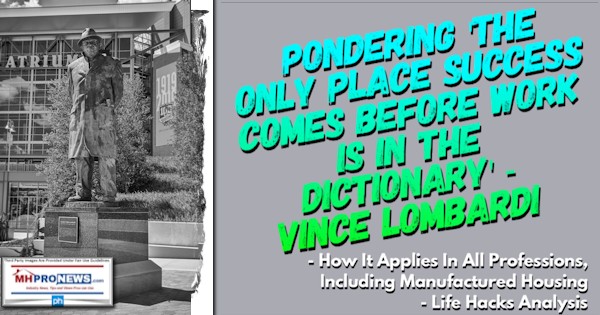
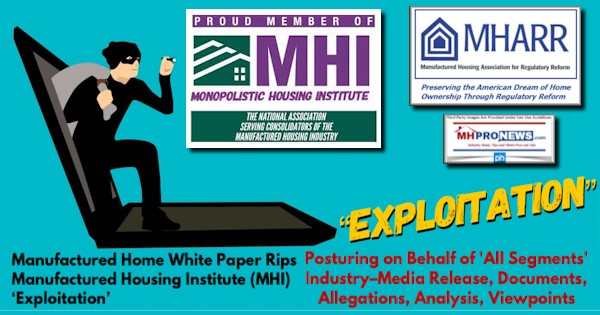
What’s New on the Words of Wisdom

What’s New on the Daily Business News on MHProNews
Saturday 8.6.2022
Friday 8.5.2022
Thursday 8.4. 2022
Wednesday 8.3.2022
Tuesday 8.2.2022
Monday 8.1.2022
Sunday 7.31.2022
More Evidence, Viewpoints, and Analysis Postscript
“Truth is stranger than fiction.” Anyone with a sense of history knows that several issues in evidence in the U.S.A. today could be advanced as examples of how often that adage is true.
The Quote Investigator says: “Mark Twain said ‘Truth is stranger than fiction. It has to be! Fiction has to be possible and truth doesn’t!’ Twain was the pen name for famous author and one-time newspaper publisher, Samuel Clemens. Twain had keen insights into our society for his day.
One reason MHProNews cites sources that span the left-center-right divide is because individuals in each of those camps often make fascinating statements that ring true. Those truisms don’t necessarily mean that they themselves are living in the truth. Some brilliant statement may be made by a person who is posturing, preening, or paltering.
America needs millions of units of affordable housing right this minute. When the MHIA of 2000, which is sometimes called the 2000 Reform Law by MHARR, was enacted by a bipartisan set of Congressional lawmakers, it was thought that it would spur more affordable home ownership. If some 22 years later it is still not being properly implemented, what went wrong?
MHARR has sounded off on that topic in an in depth analysis (more than one, but the last instance was 5 years ago), which for whatever reason MHI arguably seems to routinely ignore. Meanwhile, the industry continues its steady march toward consolidation. Companies that were once successful for decades, firms that often had happy customers that were well served are now hard to find even mentioned by so-called historians of our industry. That said, is it any wonder that with thousands of fewer retailers, with dozens of fewer producers now than existed in 2000 when the MHIA was enacted, that manufactured housing is still operating at only about 30 percent of the production level of the industry’s last highwater mark of 1998? Why doesn’t MHI issue a white paper that authentically explores the who, what, when, where, why and how of the facts that make that prior sentence true?

But it isn’t that MHI is alone as a questioned and supposed villain that postures working for “all segments” of the industry while a magical process of steady consolidation of the industry continues that benefits a few ‘insider’ brands. Here at MHProNews and on our MHLivingNews sister-site, the advocacy of MHAction or others are also explored. Some homeowners groups or nonprofits seem to apparently try in an authentic way to work on behalf of residents in land-lease communities that are the victims of the ‘predatory’ brands that often supernaturally happen to be MHI members. But others seem to be examples of an adage voiced by a father of modern Marxists, socialists, and communists, Vladimir Lenin. Lenin said: “The best way to control the opposition is to lead it ourselves.”
When the dark money trail is followed, it is startling how often the consumer ‘opposition’ to the predatory brands get ‘donations’ from deep pocketed billionaires and their allies who seemingly want to keep manufactured housing underperforming. It sounds like a bizarre conspiracy theory. Only the reason that it isn’t questioned publicly anymore by MHI and their puppet masters is because it has been too thoroughly documented too many times in the pages of MHProNews/MHLivingNews.

We’ve candidly said that our understanding of this once far greater industry a decade ago has obviously evolved. At the time, as a multiple awards and recognition earning almost twenty-year veteran of manufactured housing, this writer thought some things in MHVille were odd. Clearly, some things were obviously being ‘mishandled.’ But perhaps by publishing enough factual information with the proper analysis and commentary that the powers that be in our profession would experience an ‘aha!’ moment. They would then begin to do what was obviously necessary to advance the industry to achieve its true potential by serving millions of more Americans thirsting for affordable housing. But that was not the case. While cheered for some years for our groundbreaking publishing efforts in manufactured housing, when the time came that MHI, and then its corporate masters, were publicly questioned, the quiet ‘blackballing’ began. Those who once hailed us began to pretend that we didn’t exist.

Now, the fact that you and thousands of others logon to MHProNews literally daily is evidence that someone, or a group of people can swim against the current successfully and grow stronger from the effort. Yes, some jeer, but others appreciate what they find here, or they would not routinely logon in the first place.
Nowhere else in manufactured housing is there anything like the type of news reports, analysis, and commentary that is found on MHProNews and our MHLivingNews sister site. But that still doesn’t make us a nonprofit that is capable of launching the kinds of formal efforts, investigations, and legal actions necessary to clean up the dark side of what causes manufactured housing to underperform during an affordable housing crisis.
But in fairness, it isn’t just manufactured housing that is being subverted. Who says? How about Minneapolis Federal Reserve senior economic research James A. “Jim” Schmitz Jr.? He and his colleagues have spent years probing and writing about the troubling impact that monopolies have on a profession. One of those that they’ve studied is manufactured housing, but there are others too.
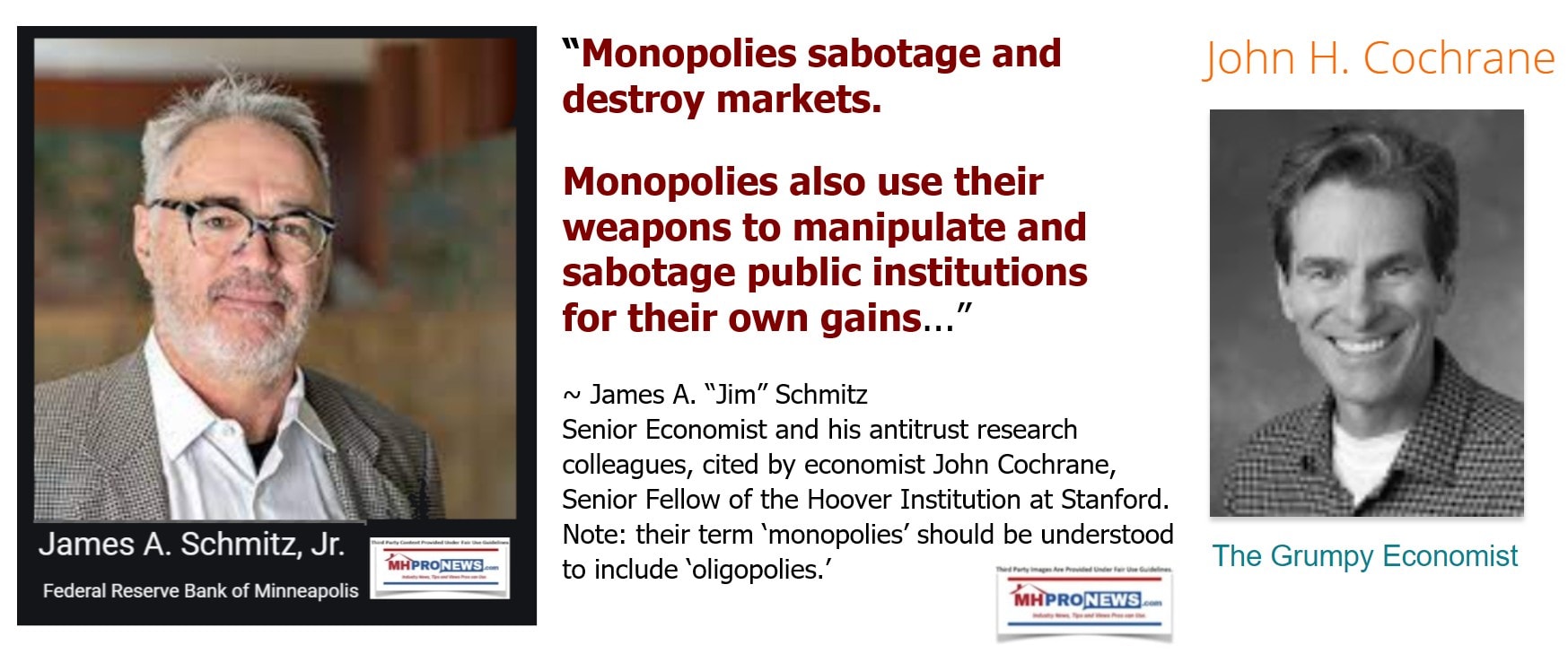
Truth can be stranger than fiction.
And if the American people ever allow private corporations and public officials acting beyond their constitutional authority to control or influence wide swatches of our society, then a time is fast approaching where “We the People” and our offspring may wake up homeless on the continent that was once considered the beacon of freedom that brought the world’s hopeful to our Republic’s shores. It is past time to do something about those who have undermined manufactured housing to the detriment of hundreds of thousands of consumers, millions of potential homeowners, and thousands of independents whose firms are now but a memory. Truth can be stranger than fiction. Those deprived of justice, many of whom don’t even understand how they fell into the snare(s) that caught them, deserve authentic advocates who dare challenge the powers that be in courts, with lawmakers, and public officials.
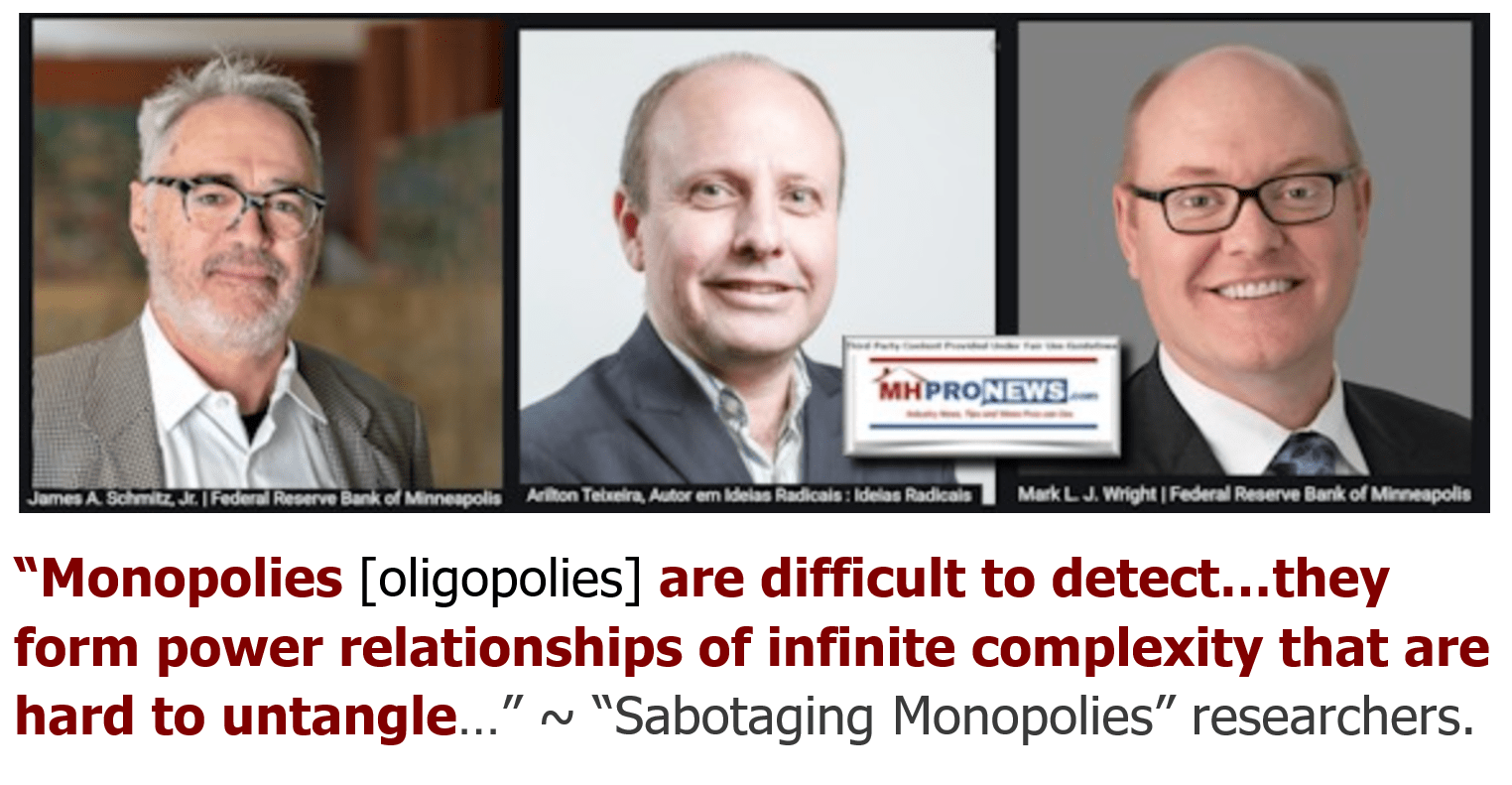
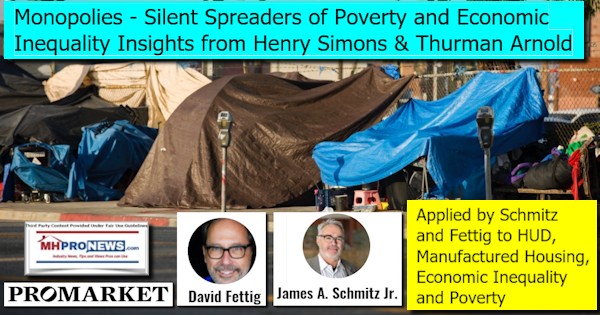
The masters of the cigarette industry once seemed invincible. There are other examples of how the once rich, famous and powerful were finally brought to justice. Yes, America is obviously not perfect. But justice can still occur “in the land of the free,” so long as enough people dare to be brave and act appropriately. ###




Again, our thanks to free email subscribers and all readers like you, our tipsters/sources, sponsors and God for making and keeping us the runaway number one source for authentic “News through the lens of manufactured homes and factory-built housing” © where “We Provide, You Decide.” © ## (Affordable housing, manufactured homes, reports, fact-checks, analysis, and commentary. Third-party images or content are provided under fair use guidelines for media.) (See Related Reports, further below. Text/image boxes often are hot-linked to other reports that can be access by clicking on them.)

By L.A. “Tony” Kovach – for MHProNews.com.
Tony earned a journalism scholarship and earned numerous awards in history and in manufactured housing.
For example, he earned the prestigious Lottinville Award in history from the University of Oklahoma, where he studied history and business management. He’s a managing member and co-founder of LifeStyle Factory Homes, LLC, the parent company to MHProNews, and MHLivingNews.com.
This article reflects the LLC’s and/or the writer’s position, and may or may not reflect the views of sponsors or supporters.
Connect on LinkedIn: http://www.linkedin.com/in/latonykovach
Related References:
The text/image boxes below are linked to other reports, which can be accessed by clicking on them.



























